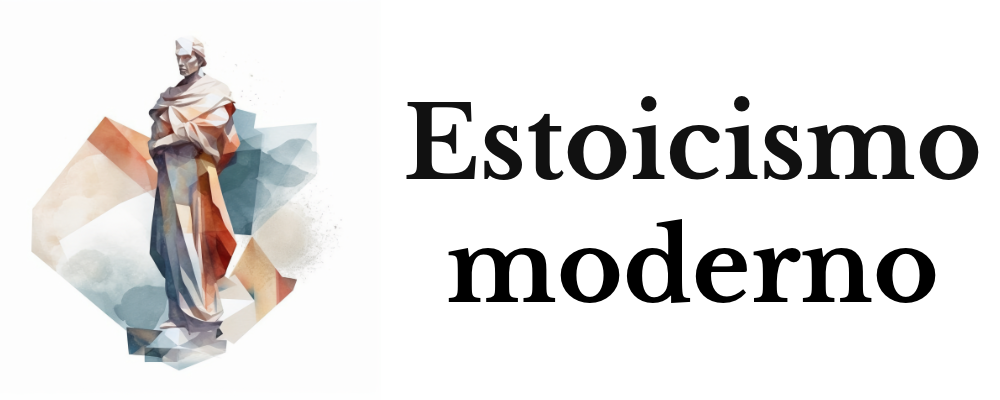Beyond Pleasure: Hedonism vs. Stoic Self-Control
In the heart of the turbulent stream of modern life, hedonism flows like a mighty river, urging its followers to plunge into sensory pleasures with youthful abandon. Yet, on the firm and contemplative shore stands Stoicism, a beacon of self-restraint and inner strength. This ancient philosophy, founded upon the reflections of Seneca, Epictetus, and Marcus Aurelius, still resonates with powerful relevance within us, challenging us to look beyond fleeting delight and consider the virtue of temperance in forging our lives.
“If you wish to improve, be content to appear foolish or stupid with respect to external affairs,” stresses Epictetus in his Handbook (Enchiridion), reminding us that wisdom lies in recognizing the fallibility of our knowledge and the superficiality that often accompanies the pursuit of pleasure. The Stoic’s words would echo in our hearts as we navigate the digital age, an untamed sea of stimuli and instant gratification.
The Yoke of Contemporary Hedonism
Modern hedonism invites us to chase happiness through the relentless accumulation of pleasurable experiences, through unchecked consumption and the gratification of insatiable desires. This siren song is seductive, but within its own melody lies the trap of dependency and disenchantment. Hedonism, however, is not just a practice, but a philosophical viewpoint suggesting that pleasure is the ultimate good and the purpose of existence.
Yet, in the musings of Marcus Aurelius, we find a divergent perspective: “Cast aside your thirst for books, so that you shall not die resentful but cheerful and grateful from the bottom of your heart to the gods” (Meditations, 2.3). Steeped in this wisdom, we confront cultural consumerism and the addiction to novelty with a vision of gratitude and simplicity. This philosopher emperor warns us of the peril in filling ourselves with ephemeral information and experiences, forgetting to appreciate the depth and richness of a contemplative life.
The Strength of Stoic Self-Control
In contrast to hedonism, Stoicism advocates for self-control as a cardinal virtue. Autonomy—the power over oneself—is the true freedom for the Stoic. No greater independence can be found than that achieved by exercising dominance over one’s own passions and desires. Seneca brings clarity to this conviction: “The most degrading kind of slavery is to be a slave to oneself” (Letters to Lucilius, 47.11). Thus, Stoicism does not condemn pleasure per se, but rather the slavery that arises from excess and the lack of self-restraint.
The relevance of this perspective is undeniable in an era defined by indulgence and excess. Daily, we face dilemmas that tempt us to yield to immediate temptations—be they unhealthy foods, social media, or impulsive shopping. In these moments of challenge, it is the Stoic self-control that promises to guide the individual to a safe harbor, away from the superficiality of hedonism.
The Practical Application of Stoicism
To embrace Stoicism in our daily lives, it is crucial to develop habits focused on growth and self-determination. One of the most effective exercises is the practice of premeditatio malorum, which encourages us to visualize potential setbacks and everyday challenges to strengthen ourselves against them. This technique prepares our mind for adversity and mitigates the impact of fortune’s unexpected blows.
Likewise, today, internal dialogue plays a central role. We must adopt an inner voice that urges us to reflection rather than reaction, assessing each desire and pleasure in the light of the greater good and personal virtue. This constant exercise of review and discernment is vital for moving from hedonism to Stoic wisdom.
Conclusion: Clear Consciousness and the Way of the Stoic
Stoicism does not promise a thorn-free flowering garden, but rather the fortitude to walk over them with bare feet and yet remain unscathed. Contemporary hedonism, with its promises of eternal pleasures, does not prepare the spirit for the inevitable deserts of life. Stoic self-control, on the other hand, stabilizes the soul and clarifies the mind, allowing us to view with serene eyes the true nature of pleasure and its place in our existence.
Let us recall the Stoic edict that invites us to discern between what is and is not within our control, and shift our focus towards a life of intentionality and purpose. May the words of Seneca, Epictetus, and Marcus Aurelius serve not only as counsel but as a crucible where we forge a robust character capable of withstanding the waves of hedonism with grace and determination.
Embracing Stoicism in a hedonistic age is not a renunciation of pleasure, but a call to understand its place in our life. Let us adopt prudence, fortitude, justice, and temperance as bulwarks against the excesses of contemporary existence. May Stoic self-control not be a restriction, but the key to authentic freedom.
> “Refine your principles and improve, not as a man of pleasure, but as a man of virtue” (Enchiridion, 51).
As we conclude this reflection, I urge you to embrace Stoic philosophy as a living practice. Let your actions be a reflection of your most sublime values, and let Stoicism be not a stern travel companion, but a wise and serene friend. And now, dear reader, may the seeds of self-determination and growth flow abundantly from the depths of your soul, as you seek a life of meaning beyond mere pleasure.







